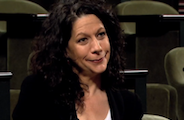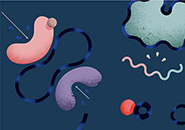42 Biomedical Scientists Worldwide Named HHMI International Research Scholars
Summary
HHMI is awarding $17.5 million to 42 outstanding scientists in 20 countries to study the molecular and genetic mechanisms underlying infectious and parasitic disease.
Tuberculosis, malaria, hemorrhagic fevers, and anthrax all are infectious and parasitic diseases posing a global problem that calls for a global solution. So the Howard Hughes Medical Institute (HHMI) is awarding $17.5 million to 42 outstanding scientists in 20 countries to tackle the mysteries of the molecular and genetic mechanisms underlying infectious and parasitic disease. What they learn could help identify potential new drug targets and develop vaccines.
Nearly 500 scientists from 62 countries applied for the five-year awards. HHMI selected researchers from Argentina, Australia, Brazil, Canada, China, Denmark, France, Germany, Hungary, India, Israel, Mali, Mexico, Portugal, Russia, South Africa, Spain, Switzerland, Thailand, and Uruguay. Each will receive $350,000 to $500,000 U.S. dollars over five years.
“Through its international program, HHMI is supporting scientists of the highest quality in their home countries,” said Institute President Thomas R. Cech, a Nobel prize-winning chemist. “We also bring these international scholars together with each other and with other scientists in the HHMI community to create an international network of scientific excellence.”
Since HHMI awarded its first infectious diseases and parasitology grants in 2000, more than 50 transnational collaborations have sprung from annual science meetings where the international research scholars gather to present their research and learn what their colleagues from around the world are doing.
“HHMI's international program underscores a growing recognition of the international scope of science and of the way international cooperation invigorates research,” said Peter J. Bruns, HHMI vice president for grants and special programs. “HHMI's support of these scientific leaders in their home countries encourages the most creative researchers, strengthens their research environments, and provides vital educational opportunities for upcoming scientists. Networking these scientists with each other and with our domestic investigators yields further unique opportunities for innovation.”
For example:
- Rajesh Gokhale is a talented young scientist who, despite attractive job offers in the United States, chose to return to his native India to study the unique mechanisms used by Mycobacterium tuberculosis , which causes TB, to modulate the proteins and lipids of its cell walls in response to changes in its environment. Understanding this “enzymatic crosstalk” in M. tuberculosis could help explain the subtle ways that the pathogen generates different reactions under varying circumstances.
- Valerie Mizrahi of the University of the Witwatersrand in Johannesburg, South Africa, a recognized leader in tuberculosis research, recently was named co-director of the only medical Centre of Excellence established by the South African Department of Science and Technology. Mizrahi studies the mechanisms underlying TB's remarkable ability to adapt to adverse conditions and persist in a dormant state from which it can reactivate to cause disease. She also devotes considerable effort to mentoring young South African scientists. This is her second HHMI infectious diseases and parasitology research award.
- Sumalee Kamchonwongpaisan from Bangkok, Thailand, will investigate how artemisinin, an effective antimalarial drug, clears parasites from infected red blood cells. Understanding the precise mechanisms of artemisinin action could lead to new targets for better drugs for treating malaria. Kamchonwongpaisan already is collaborating with two other HHMI international research scholars, Alan Cowman and Brendan Crabb, who do malaria research at the Walter and Eliza Hall Institute of Medical Research in Melbourne, Australia.
Half of the new awardees are first-time HHMI grant recipients. The other 21 are current HHMI international research scholars. The Institute also supports the work of outstanding scientists in the Baltics, Central and Eastern Europe, Russia and Ukraine and of another group from Latin America and Canada. Competitions are currently under way for grants in both programs.



